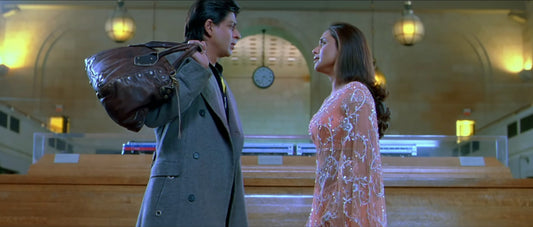The American philosopher and educator John Dewey once wrote that education is “a process of living and not a preparation for future living.”
That statement could be the creed for ILR—the Institute for Learning in Retirement at Albertus Magnus College, a “mini-university” for retirees from greater New Haven. Founded in 1989 by 40 local retirees inspired by the Elderhostel (now Road Scholar) model, ILR is serving its second generation of seniors interested in learning about everything from international criminal justice to “how to get rid of your stuff,” in classes ranging from one-off to full-semester. Albertus is officially part of the name because early on, it offered ILR the use of classrooms and a small office space. Today, classes are held at various locations, including Albertus, the Jewish Community Center of Greater New Haven, Woodbridge Town Library and the University of New Haven’s Orange campus, while some participants come from even farther afield.
sponsored by
Accessibility is part of the ILR mission; there are no entrance requirements, and the cost is a $30 annual membership and $5 to $15 per course. Volunteer instructors, known as “study group leaders,” make that low cost possible. Mito Mardin, a chemist and pharmacologist, is one of them. He brings his passion for international politics into the ILR classroom. “I think everyone should be interested in politics because that determines how we are being governed,” he says. Born and raised in Turkey and now a dual citizen of Germany and the United States, Mardin teaches several popular ILR courses on current events in the US, the Middle East and the European Union, including a three-session course on Brexit that has gone on longer than even he anticipated.
Mardin’s class “Middle East Current Events” gathered one Monday morning last spring for the final of three sessions in the auditorium of the JCC in Woodbridge. About 35 people sat in folding chairs facing a large screen, onto which Mardin projected a series of maps and dense slides full of information—way more than one could possibly digest in three short sessions. But this was the most attentive group of students a teacher could dream of. They were ready with their note pads and iPads, their coffee cups and questions.
Mardin began walking them through the informal religious boundaries in the Middle East, which don’t match the shifting national borders. He asked them how long they thought the border between Turkey and Iran has been stable. Someone guessed World War I. The answer surprised everyone: 1638. “That tells you there were large, centuries long of peaceful living side by side of Sunnis and Shiites,” Mardin argued.
sponsored by
Another question was aced by a woman who had watched the news that morning: Which country has a Jewish head of state, aside from Israel? (The answer: Ukraine, whose newly elected president Volodymyr Zelensky is Jewish.) “This group is very well informed!” Mardin exclaimed.
He drew connections among historical events, flipping back and forth between slides, often pausing for asides and questions. “Now I’m talking to you from the opinion part of me,” he told retirees, taking care to distinguish facts from personal conclusions. He covered an astonishing amount of ground: Sunni and Shia relations, the civil war in Yemen, U.S. instigations and aggressions toward foreign powers, Iranian history, tweets between President Trump and the Iranian foreign minister and more. “I can’t imagine how he keeps up with it all,” study group member Carolyn Starr said later. “He sends us his material after the class is over, and one time I just pushed print, and then I looked over and it was 90 pages… It’s just great material.”
Starr has been an ILR member for five years, since her retirement from a career in law. This spring she signed up for 10 classes. After retirement, she says, “There’s a decompression time, and then there’s the time where you have all day every day… It can be a little bit overwhelming.” Taking ILR classes reminds her of her last year of law school, she says. There were lots of mandatory classes—Starr took the bar exam in Texas, which required an entire semester of oil and gas law—but when she finally got to choose, “I thought, wow, look at all these interesting courses, and I’m almost out of here.” At ILR, “You’re really taking classes because you want to… It’s all up to you, and that really feels good.”
ILR has 700 members, 76% of whom registered for a spring course, according to Holly Chepow, who helps lead the curriculum committee. In addition to traditional-style classes, the course catalog includes a few field trips—most recently to New York City’s Chelsea neighborhood, the Connecticut College arboretum and the Cloisters in upper Manhattan, plus several short hikes in greater New Haven and “curated lunching adventures.”
Many ILR instructors are retirees, too. Starr figures they’re getting as much out of teaching as students do out of learning. “I think they sort of look at it in a similar way, a way to keep their brains going,” she says. She recalls asking art historians Irene Sommers and Michael Stein at ILR’s annual luncheon if they would teach the following semester. They “pulled out their napkins and started furiously writing and planning what their next classes were going to be.”
Institute for Learning in Retirement at Albertus Magnus College
Registration for Fall 2019 courses now open.
(203) 747-9675 | info@ilralbertus.org
www.ilralbertus.org
Written and photographed by Kathy Leonard Czepiel.








